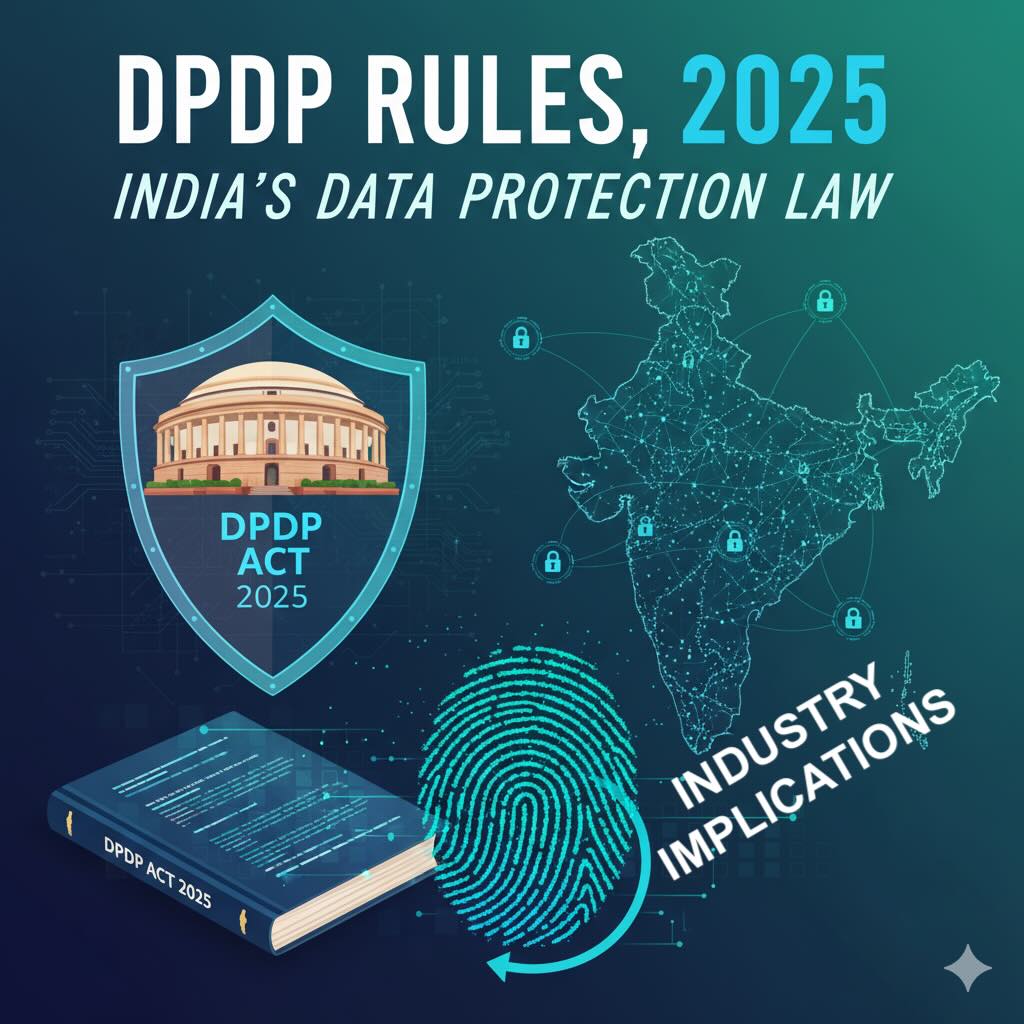
India Activates Full Privacy Framework With DPDP Rules 2025

India has officially enacted the Digital Personal Data Protection Rules 2025, marking a significant milestone in the country's data privacy landscape. These rules come into full effect after years of discussions and revisions, shaping the way businesses and organizations across India manage and process personal data. The new framework introduces comprehensive rights for citizens, increased accountability for data processors, and a structured approach to compliance, with phased implementation designed to help organizations gradually adapt to the new standards.
Under the DPDP Rules 2025, organizations handling digital personal data must ensure that they meet stringent requirements regarding the collection, storage, and processing of such data. One of the primary objectives of the regulations is to give individuals more control over their personal information. Citizens are now entitled to exercise rights such as data access, correction, and deletion, enabling them to manage their digital footprints more effectively. The rules empower individuals to demand transparency from organizations about how their data is being used, stored, and shared, thereby creating a more secure and user-centric data ecosystem.
The DPDP framework also mandates that businesses establish clear and accountable procedures for data processing, including obtaining explicit consent from individuals before collecting their data. This requirement has led to the creation of a robust consent management system, where individuals can easily opt in or out of data collection practices. Moreover, companies must implement technical measures to safeguard data from breaches, ensuring that personal information is kept secure against cyber threats.
A noteworthy feature of the DPDP Rules 2025 is the introduction of a phased compliance timeline, giving businesses time to align their operations with the new regulations. The phased approach allows smaller organizations to gradually adapt their processes without facing immediate heavy penalties. It also helps avoid overwhelming businesses with abrupt changes, ensuring a smoother transition into the new privacy regime. Larger enterprises, particularly those with significant data processing activities, are required to comply more swiftly, underscoring the government's commitment to addressing privacy concerns in the digital age.
See also Exports Expand Across 24 Countries While US Shipments SlideIn terms of enforcement, the rules establish a regulatory body responsible for overseeing compliance with data protection laws. This body will have the authority to issue penalties for violations, ranging from non-compliance to mishandling of personal data. The government has also proposed creating a data protection fund to support enforcement activities and facilitate the implementation of data protection measures across sectors. These efforts aim to strengthen India's privacy protection infrastructure and ensure that businesses take their responsibilities seriously.
One of the most pivotal aspects of the DPDP Rules is the focus on cross-border data transfers. Companies that wish to transfer personal data outside of India must demonstrate that the destination country has an adequate level of data protection laws in place. This provision aims to safeguard Indian citizens' data while promoting responsible data sharing and collaboration on the global stage. By introducing strict measures for international data exchanges, the DPDP framework places a premium on protecting the privacy of individuals both within India and abroad.
The DPDP Rules 2025 also place a strong emphasis on corporate accountability. Organizations must conduct regular audits to assess their data handling practices and identify potential vulnerabilities. Additionally, they are required to appoint Data Protection Officers responsible for overseeing data protection measures within their organizations. The accountability aspect extends to third-party vendors, as businesses must ensure that their partners and service providers adhere to the same high standards of data protection.
For the general public, the DPDP Rules provide greater visibility into how their data is being used. The introduction of a personal data breach notification system ensures that individuals are alerted if their data has been compromised. This provision is crucial in fostering trust between businesses and consumers, as it encourages transparency and swift action in case of data incidents. Companies are also required to report breaches to the regulatory body within a specified time frame, contributing to a more proactive approach to data security.
See also Figma Expands Presence with Bengaluru Office LaunchNotice an issue? Arabian Post strives to deliver the most accurate and reliable information to its readers. If you believe you have identified an error or inconsistency in this article, please don't hesitate to contact our editorial team at editor[at]thearabianpost[dot]com. We are committed to promptly addressing any concerns and ensuring the highest level of journalistic integrity.
Legal Disclaimer:
MENAFN provides the
information “as is” without warranty of any kind. We do not accept
any responsibility or liability for the accuracy, content, images,
videos, licenses, completeness, legality, or reliability of the information
contained in this article. If you have any complaints or copyright
issues related to this article, kindly contact the provider above.

















Comments
No comment